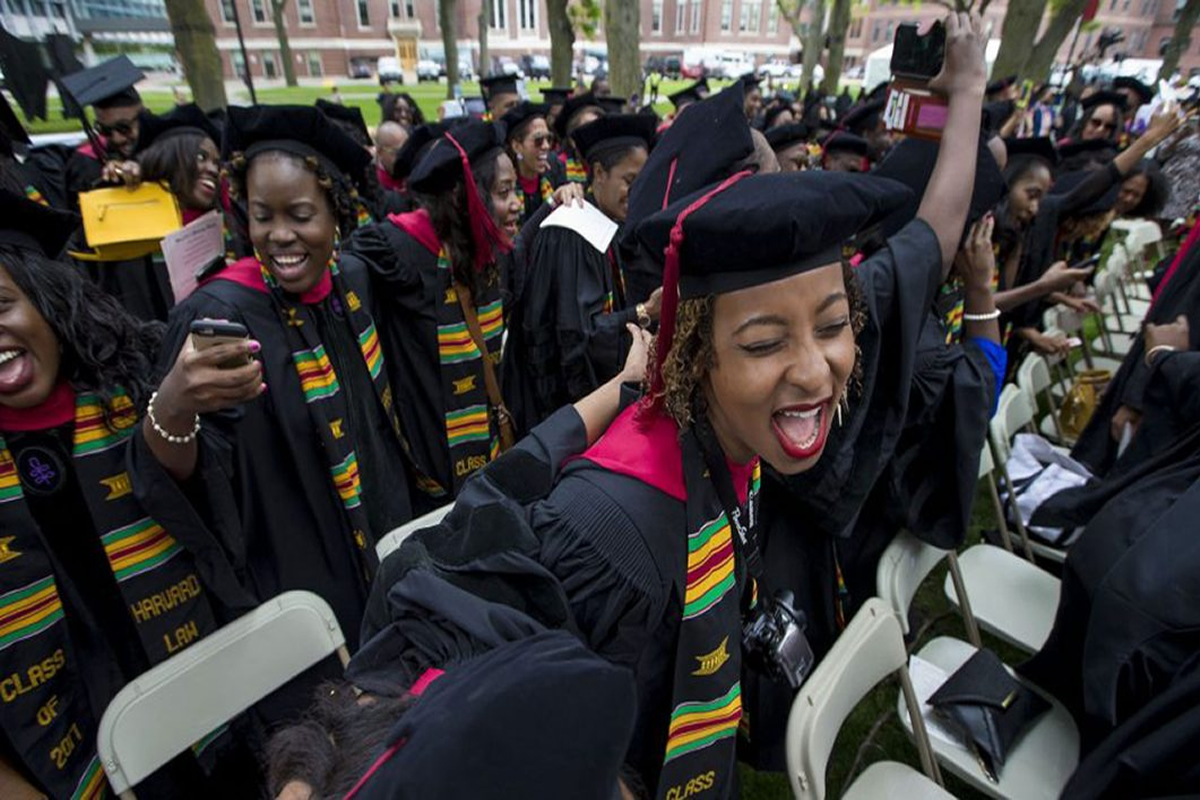The high performance of African students in the United States seems to trigger a curiosity to probe into its underlying reasons. Some admirers have come up with the explanation that the cultural differences and attitudes towards learning in addition to great level of efforts coupled with unreserved devotion to academics make the difference in African students.
For example, in Nigeria, there is a high level of devotion placed on academics. Families make sacrifices to satisfy the unquenchable thirst for knowledge and education.
The undeniable truth to this makes us take a close look at the core reason. The dynamism of Nigerian children’s education comes through traditional methods, customs and contents of their culture. Generally when education is mentioned, our ideas go to the formal western education.
But in Nigeria, education is broader than the domain of the school system. One concept of education which the people of Nigeria embrace is the transmission of wisdom and the renewal of traditional values. This is why the constant process of teaching and learning help in the realization of this ultimate end among Nigerian students.
“It is traditional because it is the handing over of the process, the aims, methods, contents of education from one generation to another.” This process involves the parents, relatives, neighbours and well-meaning members of the community. As children get older, they are instructed in those areas to aid them in the acquisition of knowledge and skills to enable them take more of the responsibilities and duties that become inevitable with their claims to maturity.
Through traditional education, social relationships are established by family history and lineage groups. Therefore, as a child grows, he or she is able to name their great-grandfather whom they had never met. Perhaps the village bears his name or he had made a history in the village. These methods make African traditional education quite different from the western form of education.
It in turn helps the child grow into a functional member of his family and group. Since culture depends on continuity, it is only the traditional education that would provide the ingredients for the continuity by transmitting accumulated knowledge and skills, values and beliefs that would form the basis for future development. To fit the contents of traditional education into the western system of education therefore can be easy for the African students.
The African students are therefore aware that the traditional education would compete favorably with the western type of education since it solved the socio-economic problems of the people before western type of education was introduced.
African children are undoubtedly capable of facing the challenges of maintaining the continuity of this method of education without jeopardizing their identity. In as much as the community helps kids make sense of their own identity, credit should go first to our African parents who modify the choices the children make.
There is no doubt, however, that African students in the United States work as hard and care as much about school as all other students in America.
Doing well in school, therefore, compliments our identity. Our effort to maintain the continuity of wisdom and knowledge becomes an advantage as we strive to exceed academic expectations.
 Gistfox Your News Window To The World
Gistfox Your News Window To The World 




